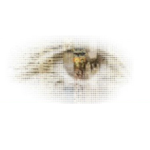
Workshop One: Digital Humanities Project Funding and Management
Instructor: Dr Jennifer Edmond
Date: 2 October 2019
Time: 13:00-16:00
In this workshop, Dr Edmond will be introduce key success factors for planning, seeking funding for, delivering and closing a digital project. Participants will learn about best practices in, as well as pragmatic tips and tricks for, such key topics as: building collaborations, scoping and costing technical requirements, assuring access and rights to data, standards and common tools, funding schemes and their requirements, team management for successful delivery and end of project considerations, such as handover, what can be expected in terms of sustainability and how to prepare for efficient later migration. In addition, researchers and practitioners from multiple disciplines and from the library will present examples of how they met the research and management challenges inherent in the delivery of digital projects.
Workshop Two: Working with Texts in the Digital Age: Digital Scholarly Editing and TEI
Instructor: Dr Michelle Doran
Date: 16 October 2019
Time: 13:00-16:00
This workshop is designed to introduce participants to the theories, practices and methods for encoding digital text in the Humanities. It provides an introduction to markup languages, XML, the infrastructure of the Text Encoding Initiative (TEI) Guidelines, and the encoding of common textual phenomena. Participants will have an opportunity to apply the basic elements of TEI-XML to encode a literary text using the oXygen XML Editor. The workshop combines lectures and discussion with practical hands-on exercises. No previous experience with digital text is assumed.
Participants are requested to bring a laptop with the latest version of oXygen XML Editor. You can download a free 30 day trial of oXygen here.
Workshop Three: Defining (the) Digital Humanities
Instructor: Dr Michelle Doran
Date: 6 November 2019
Time: 13:00-16:00
What constitutes digital humanities (or what constitutes the digital humanities) is a question to which the multiplicity of answers now comprises a genre. The answer to this question largely depends on how we define the relationships between digital humanities and the traditional humanities disciplines, as well as the emerging humanities disciplines and the natural sciences (including computational science). Exploratory rather than prescriptive in style, this workshop will ask participants to define digital humanities as it relates to their own scholarly identities, disciplines, sources and research methodologies. Participants will also be introduced to the landscape of digital humanities at Trinity College Dublin. Theoretical debates and challenges in the field will be discussed throughout this workshop which initiates the Digital Scholarship and Skills workshop series for the 2019-2020 academic year.
Workshop Four: Modelling Knowledge using Ontology
Instructor: Dr Owen Conlan
Date: 4 December 2019
Time: 13:00-16:00
This workshop will introduce the use of Ontology to enable computers to appear more knowledgeable and to facilitate analysis of complex information. The workshop will introduce the theoretical underpinnings of Ontology, the current standards being employed in representing knowledge, such as OWL and RDF, and their role in exposing a web of connected information in the form of the Semantic Web. The workshop will also include hands-on experience in developing an Ontology and Knowledge Base using Stanford’s Protégé tool.
Workshop Five: Geographic Information Systems and Historical Mapping
Instructors: Dr Frank Ludlow and Patrick Hayes
Date: 11 December 2019
Time: 13:00-16:00
This workshop will begin by briefly illustrating the power of mapping to reveal relationships between seemingly disparate phenomena through space (and time), as well as highlighting common pitfalls and poor practices in mapping, both historical and contemporary. It will also showcase a range of digital mapping platforms – including a selection from the proliferation of online platforms that host and visualize spatial data of various forms – before examining the use of two common competing desktop platforms, Google Earth and ESRI’s ArcGIS, and how the two can be made to speak to each other (or interoperate). The latter half of the workshop will be practical, with workshop participants engaging directly with ArcGIS software and being guided through fundamental approaches and techniques in historical GIS.
[ninja_form id=14]
